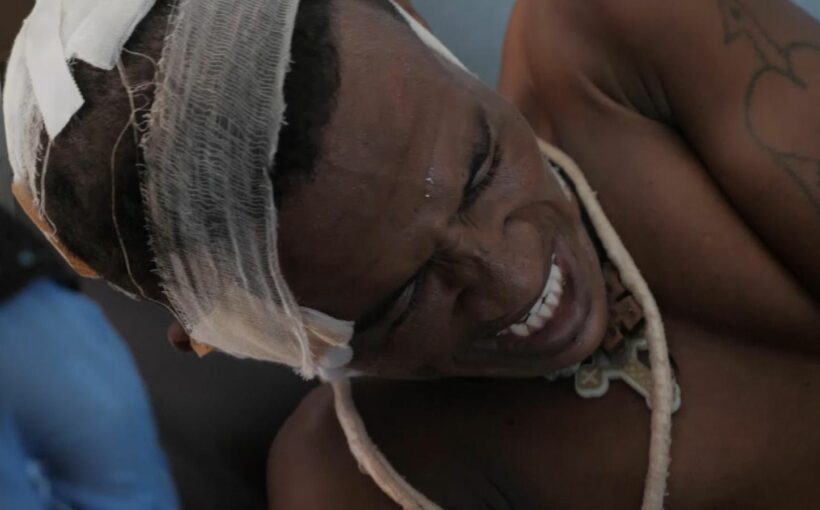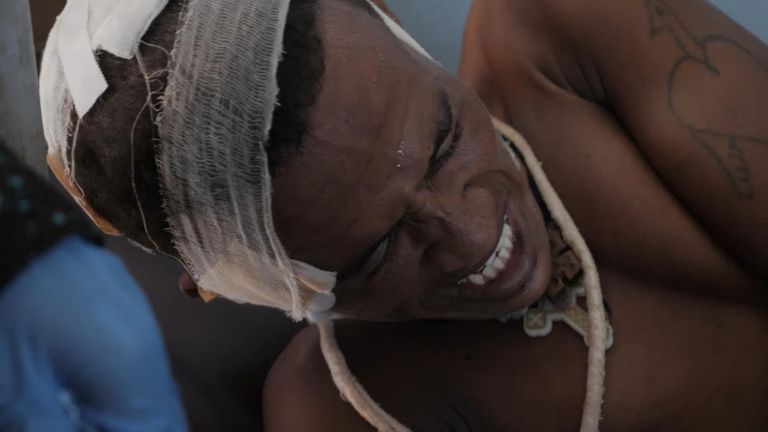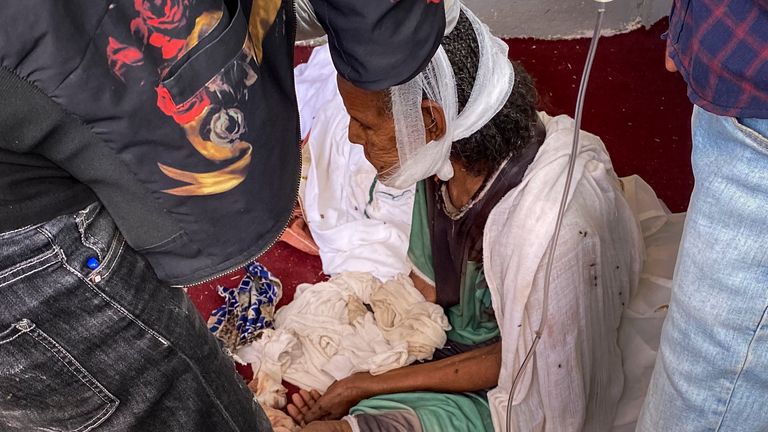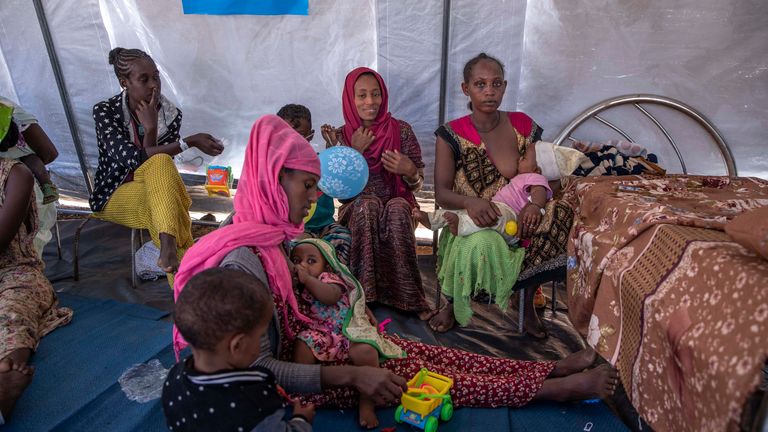Axum is a historical city – an ancient site of pilgrimage in the Ethiopian region of Tigray.
But a vicious conflict arrived in this community on the morning of 28 November, and it was signalled by the crack of gunfire from the surrounding hills.
These shots would mark the beginning of 24 hours of unspeakable violence and mass executions, according to Amnesty International.
The human rights group has compiled evidence and testimony from more than 40 witnesses and says the allegations contained within its report may constitute crimes against humanity.
Due to restrictions accessing Tigray, Amnesty said the report was based on interviews conducted with refugees in neighbouring Sudan as well as phone interviews with Axum residents.
Witnesses described house-to-house searches, mass executions and shelling and looting after Ethiopian and Eritrean troops had taken control of the city from Tigray People’s Liberation Front (TPLF).
Eritrean soldiers systematically killed “many hundreds” according to the report – targeting civilians trying to flee, and lining up men and boys and shooting them in the back.
Sky News tracked down a number of witnesses including a man called Solomon based in the US. He said he was visiting with his relatives when the massacre began.
“On (28 November) there was a big exchange of gunfire and we didn’t know who was fighting but we thought it was a local militia trying to take the (Ethiopian and Eritrean forces) out of the city.”
Solomon said the Eritreans launched a brutal campaign of revenge.
He added: “In the afternoon, a division of Eritrean soldiers came into the city and they killed so many people, so many people. There were targeting young people especially and anyone they thought could be a (member of a) militia – so three people from one house, four siblings from one house along with their dad. They were killing them.
“No one was allowed to collect the bodies and see if it was your friend or your brother. You couldn’t do that. They would shoot you.”
“How long were the bodies left on the ground?” I asked.
“I would say two-and-a-half days,” said Solomon.
Another witness, who called herself Woinshet, told Sky News that bodies were left strewn in the streets of Axum. Wild animals and birds, hyenas and vultures, began to pick at the corpses she said.
“That day was a nightmare day. The birds and the hyenas, oh my god, the hyenas (were) eating Axum (residents’) bodies.”
Solomon recounted a disturbing story about a 65-year-old woman who is related to his wife.
“They knocked on the door, her son opened it and they shot him and then the sister comes and they shot her and (the troops) left the compound. But what they didn’t know was the mother was inside and when she walked out of the dining room she saw two children shot dead in her house. She was left inside for a day and a half because no one could help her. They were afraid. Nobody was going to (leave) their houses. Neighbours heard the shots but they couldn’t check on her – so she was left in her house with her two dead children.”
“Poor woman, she has some mental problems now,” he added.
The Ethiopian government has acknowledged that the Ethiopian Human Rights Commission is investigating “allegations relating to the incidents in the city of Axum” – but in a lengthy statement, it cast doubt of the Amnesty International’s “methodology” and said the report “depended on scanty information gathered from refugees… and phone interview with individuals in Axum”.
A spokesman for Eritrean regime labelled the report “preposterous”.
Amnesty called on the Ethiopian government to ensure unfettered access to humanitarian organisations and human rights monitors. Tigray has been largely cut off since the conflict began in early November. UN agencies and the organisations like the Red Cross have been unable to reach much of the region will some officials warning of “imminent starvation”.
The president of the International Federation of the Red Cross, Francesco Rocca, told Sky News: “We are still struggling every day to have access to allow our trucks and medicine and additional support they deserve to get in and this is very frustrating, this is something that is the most difficult part (for us).”
Source: Read Full Article




